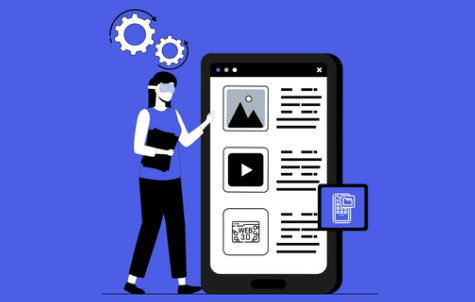
In recent years, blockchain technology has emerged as a revolutionary technology with the potential to transform various industries. One of the most promising applications of blockchain is in the development of Web3 applications. Web3, often referred to as the decentralized web, aims to create a more secure, private, and user-centric internet experience. In this blog post, we will explore the role of blockchain technology in Web3 app development and its impact on the future of the internet.
What is Web3?
Before we dive into the role of blockchain technology, let’s first understand what Web3 is. Web3 is the vision of a decentralized and user-centric internet where individuals have more control over their data and online interactions. Unlike the current web (Web2), which is dominated by centralized platforms and services, Web3 aims to distribute power back to the users through technologies like blockchain, decentralized networks, and smart contracts.
How Blockchain Powers Web3 App Development
Blockchain technology plays a crucial role in enabling the development of Web3 applications. Here are some key ways in which blockchain powers Web3:
1. Decentralization
Blockchain technology allows for the creation of decentralized applications (dApps) that run on a network of computers, rather than a single central server. This decentralization ensures that no single entity has control over the application, making it more resilient to censorship and tampering.
2. Data Privacy and Security
Blockchain provides a secure and tamper-proof way of storing data. In Web3 applications, user data is encrypted and stored on the blockchain, ensuring that it cannot be accessed or manipulated by unauthorized parties. This enhances data privacy and security, giving users more control over their personal information.
3. Smart Contracts
Smart contracts are self-executing contracts with the terms of the agreement directly written into code. These contracts run on the blockchain, ensuring that they are executed exactly as programmed without any possibility of downtime, fraud, or interference. Smart contracts are a key feature of Web3 applications, enabling automated and trustless transactions.
4. Tokenization
Blockchain allows for the tokenization of assets, turning physical or digital assets into unique tokens that can be traded or exchanged on the blockchain. This enables new business models and revenue streams for Web3 applications, such as token-based economies and decentralized finance (DeFi) applications.
5. Interoperability
Blockchain technology enables different blockchain networks and dApps to communicate and interact with each other. This interoperability is crucial for the development of a seamless and interconnected Web3 ecosystem, where users can easily move assets and data across different applications and platforms.
Use Cases of Blockchain in Web3 App Development
The combination of blockchain technology and Web3 principles has led to the development of a wide range of innovative applications across various industries. Some of the key use cases of blockchain in Web3 app development include:
1. Decentralized Finance (DeFi)
DeFi applications leverage blockchain technology to create a more open and accessible financial system. These applications enable users to lend, borrow, trade, and invest in a peer-to-peer manner, without the need for traditional financial intermediaries.
2. Digital Identity
Blockchain technology can be used to create a secure and verifiable digital identity for individuals. This can be used for various purposes, such as accessing online services, signing documents, and proving ownership of assets.
3. Supply Chain Management
Blockchain technology can improve transparency and traceability in supply chains by recording the movement of goods and verifying the authenticity of products. This can help reduce fraud, counterfeiting, and inefficiencies in supply chain operations.
4. Voting and Governance
Blockchain technology can be used to create transparent and tamper-proof voting systems for elections and governance processes. This can help increase trust and participation in democratic processes.
5. Content Monetization
Blockchain technology enables new ways for content creators to monetize their work, such as through micropayments, subscriptions, and token rewards. This can help creators bypass traditional intermediaries and retain more value from their content.
Conclusion
Blockchain technology plays a crucial role in enabling the Web3 App Development, which aim to create a more decentralized, private, and user-centric internet. By leveraging blockchain technology, developers can create innovative applications that offer new possibilities for decentralization, data privacy, and trustless transactions. As the Web3 ecosystem continues to evolve, we can expect to see even more exciting developments that will shape the future of the internet.







